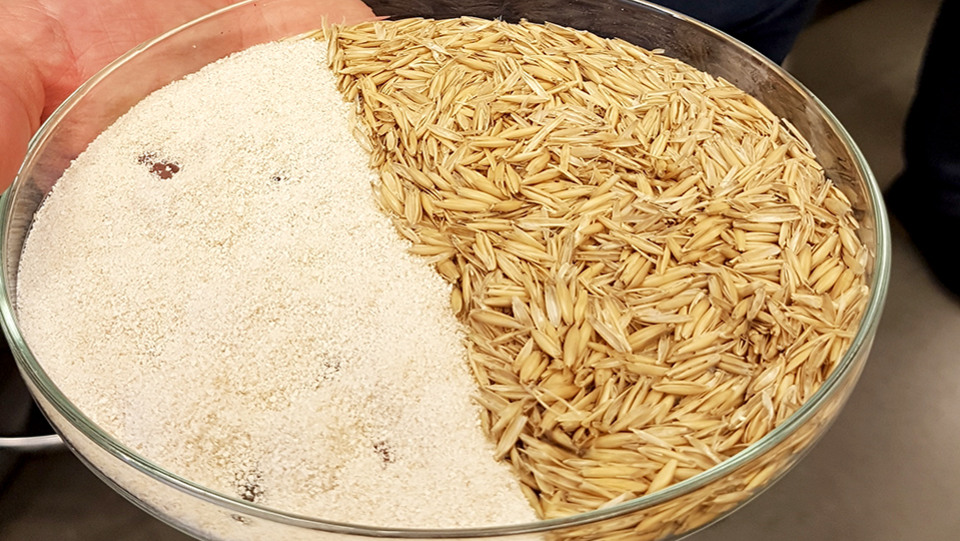
Burn or give to the animals? No, upgrade to valuable products. Photo: Sofia Klugman
Residues from forestry and agriculture become new valuable products
Residual flows are an important and often unused resource in the bioeconomy. An IVL-led project within the strategic program BioInnovation has looked at the possibilities of refining residues from forestry, agriculture and aquaculture into new products. Six different sub-projects have done everything from growing shiitake mushrooms on birch chips – which are then broken down so that you can make ethanol fuel from it, to developing "cheat meat" from rapeseed cake, which is left over when rapeseed oil is squeezed out.
– We have several reports with interesting results. Above all, they all show what potential there is in these residual streams that are not used today, says Sofia Klugman at IVL, who has coordinated the Bioeconomics 2.0 project.
The innovation project has consisted of six sub-projects that have looked at new areas of use for the residual streams. The goal has been to show the potential in upgrading residual products and developing specific value chains. The project will also provide broader lessons that can benefit the development of other bioeconomic solutions.
The researchers have worked in close collaboration with industries and food producers to be able to take the results from laboratory scale to large-scale production.
– The reports are both about the availability of residual materials, sustainability assessments of the new products, and about technical innovation systems, such as how to introduce new foods based on what is today considered "garbage" from agriculture, says Sofia Klugman.
IVL has coordinated the project and performed life cycle analyzes for some of the sub-projects. Rise and Chalmers Industriteknik have assessed access to residual materials, technical innovation systems and energy integration.
Read more about the sub-projects on BioInnovation's website. External link, opens in new window.
External link, opens in new window.
For more information, please contact:
Sofia Klugman, sofia.klugman@ivl.se, +46 (0)10-788 67 17
Bioeconomics 2.0 is a three-year project within the strategic innovation program BioInnovation. It has a total bid of SEK 39 million and is financed by Vinnova.
